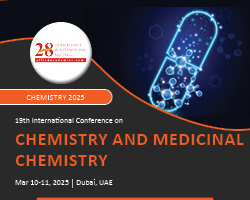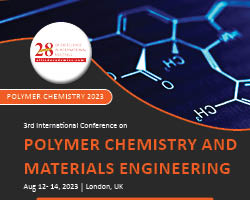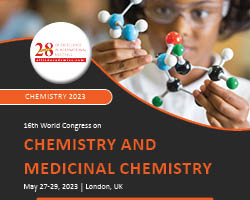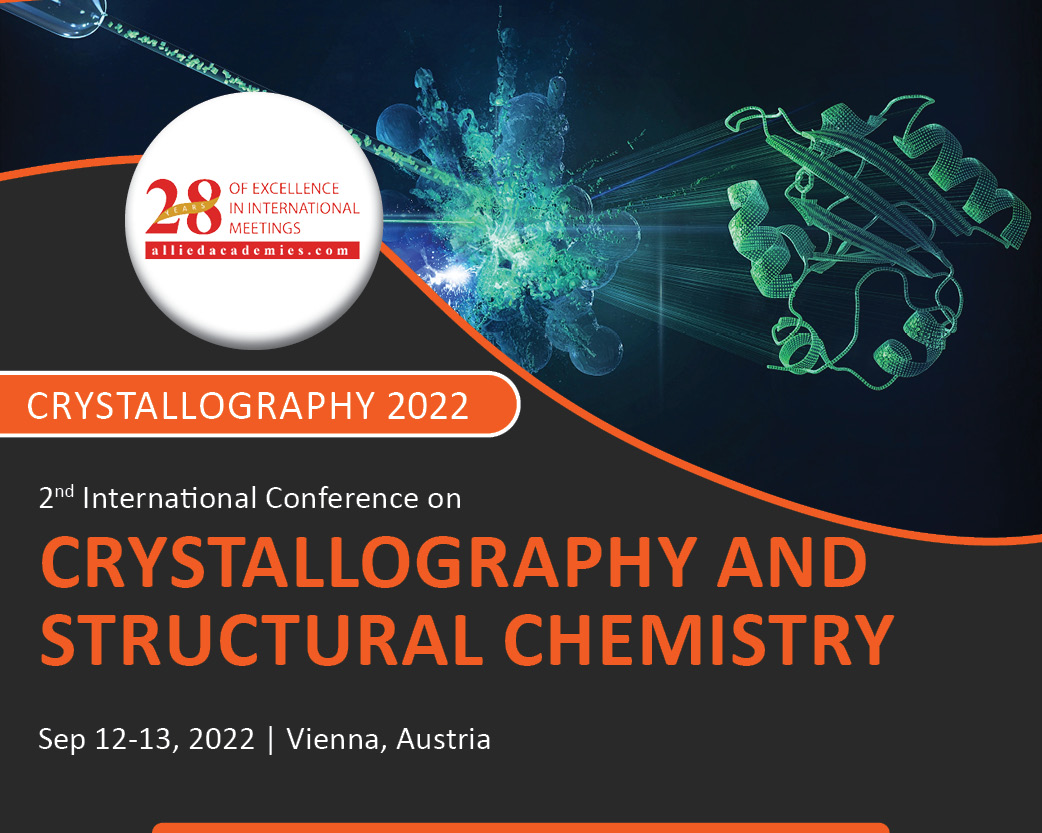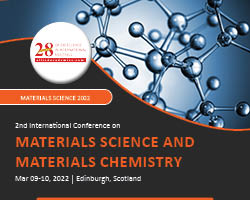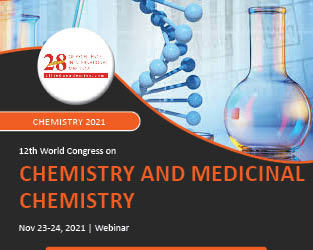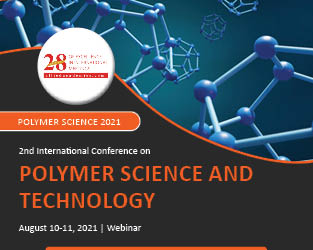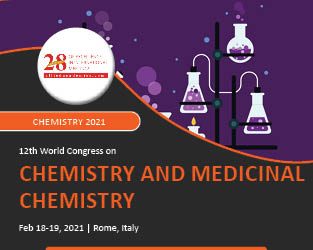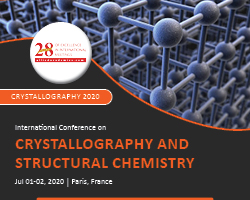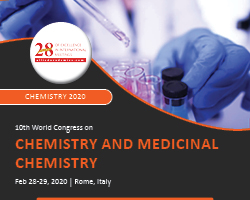2026 Conferences
2025 Conferences
2024 Conferences
2023 Conferences
2022 Conferences
2021 Conferences
2020 Conferences
Allied Academies Conferences isdelighted to host you all this year at the internationally recognized Chemistry Conferences.Allied Academies Chemistry Conferencesassemble a wide range of scientific disciplines to discover, design, and deliveryof new drugs and therapies. Chemistry Conferencesis a worldwide stage to examine and find out about Fundamentals of Organic Chemistry, OrganicChemistry, Materials Chemistry, Analytical Chemistry, Inorganic Chemistry, GreenChemistry, Physical Chemistry, BioChemistry, Theoretical Chemistry, Scientificgatherings in the field of science.
These Global Chemistry Meetings would examine different themes identified with Biochemistry, Agricultural and Food Chemistry, Nuclear Chemistry, Polymer Chemistry, Stereochemistry, Forensic Chemistry, Medicinal and Pharmaceutical Chemistry, Industrial Chemistry and Environmental Chemistry. Allied Academies has taken the initiative to gather the world-class specialists both from academia and industry in a single platform.
There are five maindivisions of chemistry,each of which is widely spread into many areas of study. Analytical chemistryuses qualitative and quantitative observations to detect and measure thephysical and chemical properties of a substance. Physical chemistry combineschemistry with subject of physics. Physical chemists study how matter andenergy interact with each other to form the result that they do. Thermodynamicsand quantum mechanics are two of the important divisions of physical chemistry.Organic chemistry specifically studies compounds that contain the elementcarbon and everything related to it. Carbon has many unique properties thatallows it to form strong chemical bonds and very complex molecules. Organicchemistry is also known as the ‘Chemistry of Life’ because living tissues ofthe body have molecules which have carbon in them as a prime content. Inorganicchemistry studies materials such as metals and gases that do not have carbon asa part of their component. Biochemistry is the study of chemical processes thattake place in living organisms.
Chemical engineersresearch the available and develop new materials or processes that primelyinvolve chemical reactions. Chemicalengineering combines chemistry with engineering and related concepts tosolve technological problems. A challenge in chemistry field is the developmentof a unified explanation of the complex behaviour of atoms and materials, as onwhy they appear like they do, what gives them their properties, and howinteractions among different atoms and molecules can bring about the formationof new substances and the destruction of old ones.
Medicinal compounds areorganic in nature and are classified into small organic molecules andbiologics. In many cases Inorganic and organometallic compounds are also usefulas drugs. The interdisciplinary team-work at the interface between chemistry,biology and medicine is required for Drug research. The discipline of Medicinalchemistry is both science and an art. The former offers humankind its besthopes for improving the living quality and the latter, still challenges itsresearchers with the need for both intuition and experience to discover newdrugs. An important aspect of drug designing is to understand the principalcomponent in the natural product that is having the therapeutic benefit. Theimportant role that medicinal chemistry plays is in developing a drug withtherapeutic benefits. The discipline that focuses on the mechanisms by whichcells process, integrate, and act on information to create and propagate livingorganisms is Molecular Biology and Biochemistry. Inorganic chemistry covers crystallography, atomicstructure, electrochemistry, ceramics, chemical bonding, coordination ofcompounds and acid-base reactions. It is found that inorganic chemistry is theonly discipline within chemistry that examines specifically the differencesamong all the different kinds of atoms.
Allied Academies Conferencesbrings together coteries who are well-versed in making people’s lives easier.They are handpicked to deliver sharp talks and come together to discusslife-changing researches. Attendees from over 40 countries participate toaccess the plenary talks, keynotes, workshops, symposiums, posters, oralpresentations and Young Research Forum. It is important to sensitize the younggeneration with personal and social hygiene for them to grow up to be anenlightened generation. To discuss the issues and accomplishments in the fieldof Chemistry Allied Academies Conferences has taken the initiation togather the world class experts both from academia and industry under a singleroof at its international chemistry conferences.
You can learn, discuss,present, network and visit a new country through our chemistry conferences. Ourconferences will help curate new ideas to help you improve new approaches. Agood conference forces you to grow and gives you new challenges. Meetestablished peers and make new connections around the world which is a greatopportunity to network. Your chances of learning new skills and updates inchemistry greatly improves when you’re sharing the same space as eminentexperts, professors and business partners.
Why should you attend Allied Academies internationalgatherings? Attending CPD-accreditedAllied Academies chemistry conferenceshave become more important than ever. It is necessary to keep in step with theinnovations shaking the world and solutions curing the incurable with chemistry.Bringing your research to the global attention will give you a freshperspective along with professional exposure. We have seen networks buildingand ideas igniting. We run for the single – an enlightened tomorrow foreveryone alike. Join us in this journey.
Chemistry is a path to learn the properties, characteristics, physical and chemical changes of matter. This branch of science is concerned with the in-between world of atoms, molecules, and chemical processes rather than the most basic elements of reality, such as fundamental particles or the complex world of living organisms.
Understanding atoms and what causes them to react is an important aspect of chemistry. It turns out that electrons orbiting atoms are frequently mediated by reactivity, and that this is how electrons are exchanged and shared to form chemical bonds.
Analytical chemistry is a science of obtaining, processing, and communicating information about the composition and structure of matter
Biochemistry is the study of the chemical processes that occur in living organisms, such as farming, and the impact the resulting produce has on our body's metabolism.
Chemical engineering is concerned with the creation and manufacture of products through chemical processes. This includes developing machinery, systems, and processes for refining raw materials as well as mixing, compounding, and processing chemicals.
Organic chemistry, the study of carbon-containing compounds, connects molecules in novel ways to create and analyze a wide range of materials, from drugs to plastics to flexible electronics. The study of materials based primarily on elements other than carbon is known as inorganic chemistry. Pigments, fertilizers, catalysts, and other inorganic compounds are examples of inorganic compounds.
Physical chemistry investigates chemistry through the lens of physics, for example, changes in pressure, temperature, and conversion rates as substances react
Inorganic chemistry is the study of the synthesis and behavior of inorganic and organometallic compounds is known as inorganic chemistry. This field encompasses chemical compounds that are not carbon-based, as opposed to organic chemistry's subjects.
Chemists have always developed cancer treatments, improved our understanding of radioactive elements, and created mobile X-ray machines for use in field hospitals – and that's just Marie Curie. Rosalind Franklin helped us understand the structure of DNA as a double helix, paving the way for the modern genetic revolution.
More recently, advances in chemistry and biology have aided in the development of coronavirus vaccines, with the first approved messenger RNA vaccines utilizing our knowledge of DNA and RNA (mRNA).
From the development of plastics, and thus nylon, waterproof clothing, and even bulletproof vests, to the liquid crystal display you are most likely reading this on, to the complete synthesis of medicines, chemistry has made numerous contributions to modern life.
Market Analysis
- Chemistry Conferences
- |
- Biochemistry Conference
- |
- Inorganic Chemistry Conference
- |
- Organic Chemistry Conference
- |
- Analytical Chemistry Conference
- |
- Medicinal Chemistry Conference
- |
- Industrial Chemistry Conference
- |
- Quantum Chemistry Conference
- |
- Electrochemistry Conference
- |
- Environmental Chemistry Conferences
- |
- Chemistry Events
- |
- Chemistry Meetings
- |
- Biochemistry Congress
The global chemicals industry is one of the largest in the world, accounting for roughly 15% of the US manufacturing economy. This was worth $711.0 billion in 2019 and is expected to be worth $953.9 billion by 2027, growing at a 5.0 percent CAGR from 2020 to 2027.
Research and development has aided in the creation of products with optimal and advanced features. This is one of the major factors driving the market's expansion. With rapid industrialization, noticeable demand has emerged from Asian countries such as India and China.
In Asia-Pacific, there has been an increase in investments in construction and infrastructure development projects. As a result, Asia-Pacific is viewed as a favorable destination for specialty chemical manufacturers, boosting market growth. The CASE segment, which includes coatings, adhesives, sealants, and elastomers, has emerged as a profitable segment, accounting for a 4.9 percent value share in 2020. Between 2020 and 2027, construction chemicals are expected to emerge as a prominent product segment, with significant growth projections.
On a regional basis, Asia-Pacific accounted for 36% of the market, the highest of any region. This is due to the presence of key developing economies such as China, India, and Japan in this region, which will account for the largest market share in the specialty chemicals market in 2022. Paints and coatings, water treatment, personal care ingredients and cosmetics, electronics, agriculture, and other applications use specialty chemicals in the Asia-Pacific region.
Current Trends
Inorganic and organic chemicals, ceramics, polymers, elastomers, surfactants, acids, oleochemicals, alcohols, dyes, bases, salts, alkalis, oils, colorants, esters, coatings, solvents, neutral gases, petrochemicals, process gases, and source gases are the major industrially and functionally significant chemical product categories. Other chemicals are sourced from uncultivated biomass, agriculture, mining, industrial chemical synthesis reactions, and even water.
